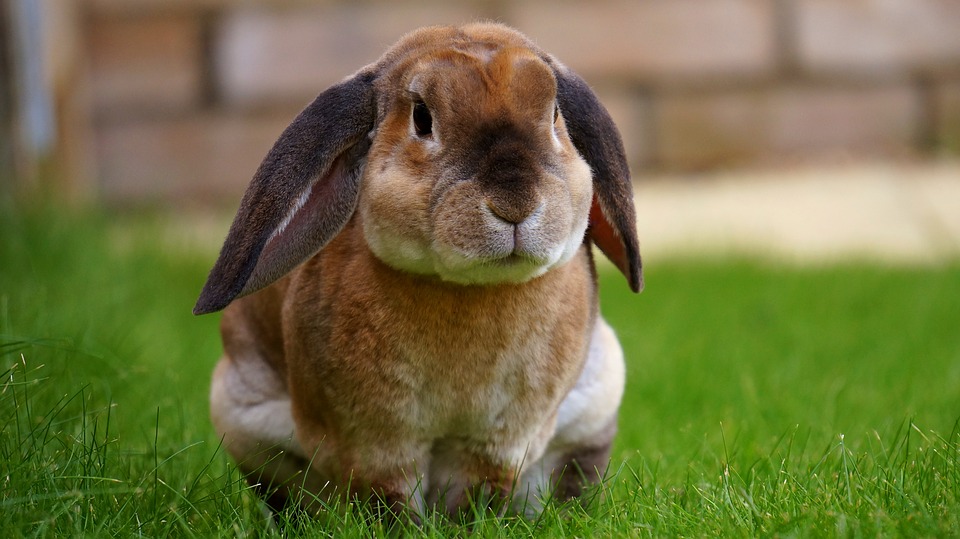This comprehensive guide delves into the world of herbs and their suitability for rabbits, addressing the specific question of rosemary and offering a clear understanding of its potential benefits and risks for your beloved bunny. We'll explore the nutritional value of herbs, discuss how to safely introduce them into your rabbit's diet, and provide a list of safe and beneficial alternatives to rosemary.
Part 1: Understanding Rabbit Nutrition and Herb Preferences

1.1 Rabbits: Herbivores with Specific Needs
Rabbits are strict herbivores, meaning their digestive system is designed to process plant matter. Their diet should primarily consist of hay, supplemented with fresh vegetables, a small amount of pellets, and occasional treats. This ensures they receive the necessary vitamins, minerals, and fibre for optimal health.
1.2 The Importance of Fibre for Rabbits
Fibre is crucial for a rabbit's digestive health, playing a role in maintaining a healthy gut microbiome and preventing digestive problems like bloat, constipation, and diarrhoea. Hay is the primary source of fibre in a rabbit's diet, but fresh herbs can also contribute to their overall fibre intake.
1.3 The Art of Offering Herbs: A Gradual Approach
When introducing herbs to your rabbit's diet, start with small quantities and observe their response. This allows you to assess their tolerance and identify any potential allergic reactions.
Part 2: Rosemary: A Detailed Look at Potential Benefits and Risks

2.1 Rosemary: A Popular Herb with a Rich History
Rosemary (Rosmarinus officinalis) is a fragrant herb with a long history of culinary and medicinal uses. It's renowned for its distinctive flavour and potential health benefits for humans, but its effects on rabbits are less well understood.
2.2 Potential Benefits of Rosemary for Rabbits (Limited Evidence)
While there's limited research on the specific benefits of rosemary for rabbits, some proponents suggest its potential:
- Antioxidant properties: Rosemary contains antioxidants that may help protect rabbit cells from damage.
- Anti-inflammatory properties: Some studies suggest rosemary may have anti-inflammatory properties that could benefit rabbits with certain conditions.
2.3 Potential Risks of Rosemary for Rabbits (Key Concerns)
Despite potential benefits, there are significant concerns regarding rosemary's safety for rabbits:
- Essential oils: Rosemary contains essential oils that can be toxic to rabbits when ingested in large quantities. These oils can cause digestive upset, irritation, and even more serious health problems.
- Allergic reactions: Rabbits can be sensitive to certain herbs, and rosemary is no exception. Allergic reactions can manifest as skin irritation, diarrhoea, or respiratory distress.
- Digestive upset: Rosemary's strong flavour and pungent aroma can be challenging for sensitive rabbit stomachs, leading to bloating, gas, and diarrhoea.
2.4 The Verdict: Proceed with Extreme Caution
Given the potential risks and limited research on rosemary's benefits for rabbits, it's crucial to err on the side of caution. It's best to avoid offering rosemary to your rabbit unless specifically advised by a veterinarian.
Part 3: Exploring Safe and Beneficial Herbs for Rabbits
A variety of herbs can be safely included in a rabbit's diet, providing nutritional benefits and adding variety to their meals.
3.1 Parsley: A Vitamin C Powerhouse
Parsley (Petroselinum crispum) is a great source of vitamin C, a vital nutrient for rabbits. It also provides fibre and can help stimulate appetite. Offer parsley in moderation, as excessive intake can lead to digestive upset.
3.2 Coriander (Cilantro): A Source of Vitamin K
Coriander leaves (Coriandrum sativum), also known as cilantro, are a good source of vitamin K, crucial for blood clotting. Offer coriander in small amounts, as it can be a bit strong for some rabbits.
3.3 Basil: A Flavorful and Nutritious Treat
Basil (Ocimum basilicum) is a fragrant herb that can add a pleasant aroma to your rabbit's diet. It's rich in vitamin A and can be offered in moderation.
3.4 Mint: Refreshing and Digestive Aid
Spearmint (Mentha spicata) is generally safe for rabbits in small quantities. It's refreshing and can aid digestion. However, peppermint (Mentha piperita) should be avoided as it can cause digestive problems.
3.5 Dill: A Unique Flavor Profile
Dill (Anethum graveolens) is a fragrant herb that can add a unique flavour to your rabbit's diet. It contains vitamins A and C and can be offered in moderation.
3.6 Chamomile: A Calming and Anti-Inflammatory Option
Chamomile (Matricaria recutita) is known for its calming properties and can be offered to rabbits in limited quantities. It's a good source of antioxidants and may help soothe digestive issues. However, ensure it's free of pesticides and chemicals.
Part 4: Introducing Herbs to Your Rabbit's Diet: A Safe and Gradual Approach
Introducing new foods, including herbs, to your rabbit's diet requires a careful and gradual approach to prevent digestive upset or allergic reactions.
4.1 Start Small: The Rule of Tiny Amounts
Begin by offering a small piece of the herb to your rabbit and observe their reaction closely. Monitor for any signs of digestive upset, such as diarrhoea, gas, or bloating.
4.2 Fresh is Best: The Importance of Fresh Herbs
Fresh herbs are preferred over dried ones as they contain higher levels of nutrients and are less likely to cause digestive issues.
4.3 Choose Organic: Prioritising Pesticide-Free Herbs
Opt for organic herbs whenever possible to avoid potentially harmful pesticides and chemicals.
4.4 Variety is Key: Rotating Herbs for Balanced Nutrition
Offer a variety of herbs in moderation, rotating them regularly to provide a balanced diet and prevent boredom.
4.5 Observe and Adjust: Tailoring to Your Rabbit's Needs
Monitor your rabbit's response to the herbs and adjust the amount or frequency of feeding based on their individual needs and tolerance.
Part 5: A Balanced Diet for a Happy and Healthy Rabbit
A healthy rabbit diet should consist primarily of hay, supplemented with fresh vegetables, a small amount of pellets, and occasional treats.
5.1 Hay: The Essential Building Block
Hay should make up the bulk of your rabbit's diet, providing essential fibre for their digestive health and preventing dental problems. Choose a good quality hay such as Timothy or Meadow hay.
5.2 Fresh Vegetables: A Daily Delight
Offer a variety of fresh vegetables daily, including leafy greens, root vegetables, and bell peppers. Avoid starchy vegetables like potatoes and corn.
5.3 Pellets: A Supplement to Hay and Vegetables
Pellets should be offered in limited quantities as a supplement to hay and fresh vegetables. Choose high-quality pellets specifically formulated for rabbits.
5.4 Water: The Fountain of Life
Always provide fresh, clean water for your rabbit to drink throughout the day.
Part 6: FAQs: Addressing Common Concerns
6.1 Can Rabbits Eat Rosemary?
While not outright toxic, rosemary is not recommended for rabbits due to potential risks. It's best to avoid rosemary and choose safer alternatives.
6.2 Are All Herbs Safe for Rabbits?
No, not all herbs are safe for rabbits. Some herbs, like onions, garlic, and chives, are toxic. Always research an herb before offering it to your rabbit.
6.3 How Often Can I Give My Rabbit Herbs?
Herbs should be offered as treats in moderation, no more than a few times a week.
6.4 What if My Rabbit Has an Allergic Reaction to an Herb?
If you notice any signs of an allergic reaction, such as skin irritation, diarrhoea, or respiratory distress, immediately stop feeding the herb and consult your veterinarian.
6.5 What Are Some Other Safe Treats for Rabbits?
Besides herbs, rabbits can enjoy other safe treats in moderation, including apple slices, banana slices, and small amounts of dried fruit. Always choose treats that are low in sugar and fat.
6.6 How Can I Encourage My Rabbit to Eat Herbs?
You can encourage your rabbit to eat herbs by chopping them finely and mixing them into their hay or pellets. You can also try offering them as a reward after a good behaviour.
6.7 Should I Boil or Cook Herbs Before Giving Them to My Rabbit?
No, it's not recommended to boil or cook herbs for rabbits. Fresh herbs are the best option, and cooking can destroy nutrients and make them harder to digest.
Everyone is watching
-

Do Rabbits Lay Eggs? (The Surprising Truth)
OTHER TYPES OF PETSThis article will unravel the common misconception that rabbits lay eggs, exploring the fascinating world of r...
-

What's a Group of Rabbits Called? (A Comprehensive Guide)
OTHER TYPES OF PETSThis article delves into the fascinating world of rabbits, exploring the various terms used to describe a grou...
-

Can Rabbits Eat Grapes? A Guide to Safe Rabbit Treats
OTHER TYPES OF PETSThis comprehensive guide will explore the safety and suitability of grapes for rabbits, providing detailed inf...
-

Predators That Hunt Rabbits: A Guide to Natural Enemies
OTHER TYPES OF PETSI've always been fascinated by the circle of life, that delicate dance between predator and prey. Growing up ...
-

Are Rabbits Nocturnal Animals?
OTHER TYPES OF PETSThe question of whether rabbits are nocturnal animals is a fascinating one, with a surprisingly complex answer...
